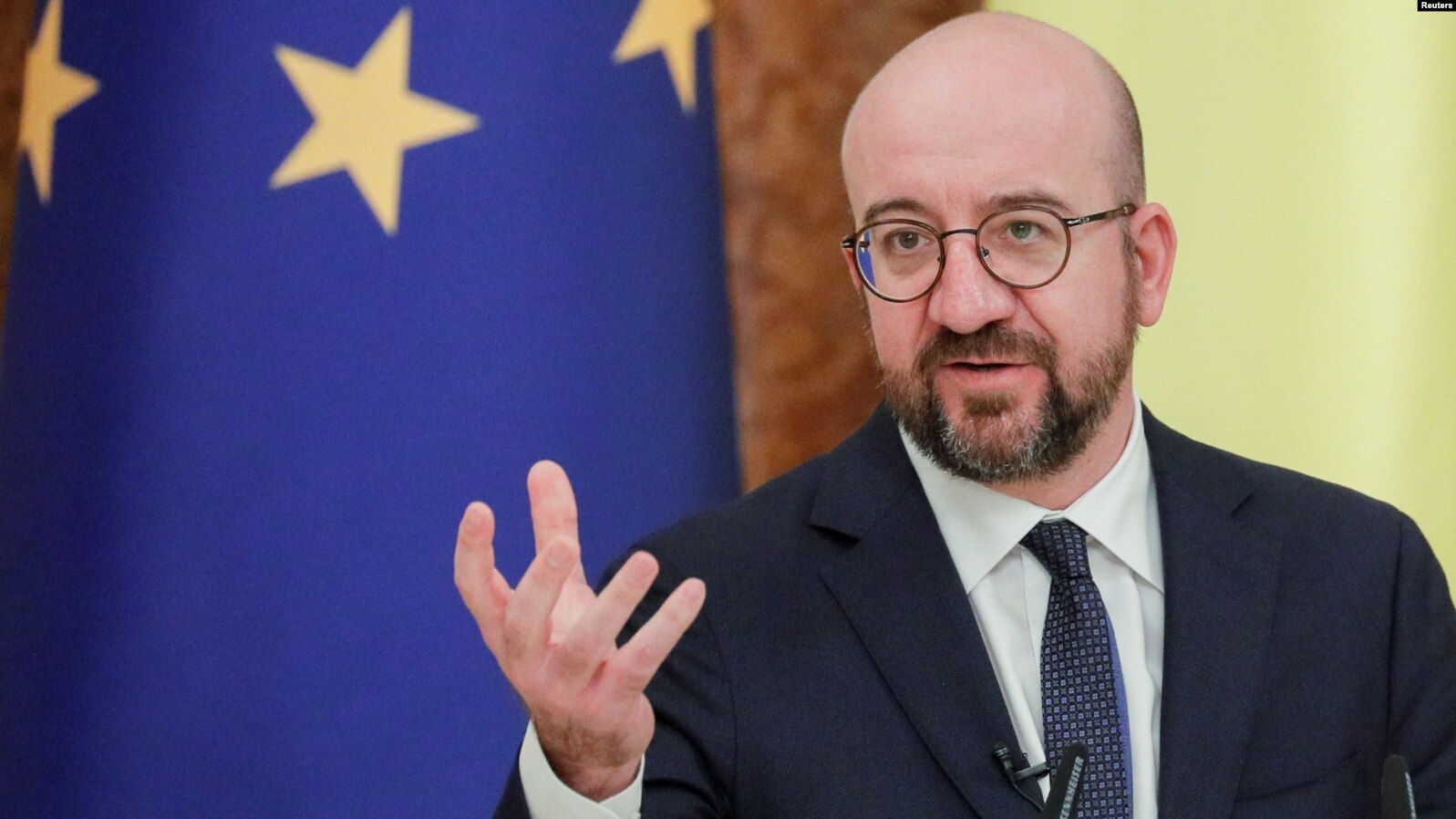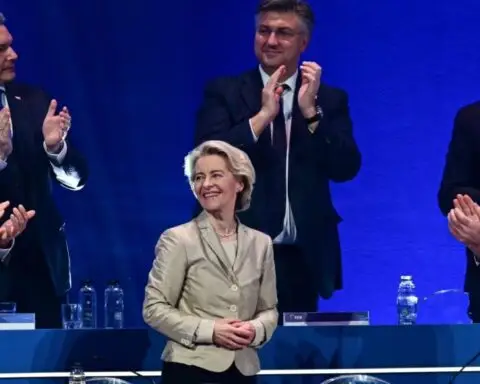European Council President Charles Michel has told Russian President Vladimir Putin that relations between the European Union and Russia are “at a low point” with disagreements in “many areas,” which the Russian leader blamed on the bloc’s “confrontational policies.”
Michel and Putin spoke by telephone on March 22 after the EU imposed sanctions on two Chechen officials over rights abuses in Russia’s North Caucasus region of Chechnya and ahead of a video conference of EU leaders on March 25-26 set to address EU-Russia ties.
“President Michel expressed the view that EU-Russia ties are at a low point and confirmed the EU’s approach of the five guiding principles, based on the EU’s core values,” the European Council said in a statement, acknowledging that there is “currently disagreement in many areas.”
It said EU-Russian relations “can only take a different direction if there is sustained progress on issues like the implementation of the Minsk agreements” aimed at putting an end to the conflict in eastern Ukraine, where fighting between Ukrainian government forces and Moscow-backed separatists has killed more than 13,000 people since April 2014, as well as “stopping hybrid and cyberattacks” on EU member states, and “respect for human rights.”
Michel reiterated the EU’s call on Russia to release opposition politician Aleksei Navalny and “proceed with a transparent investigation into the assassination attempt” on the jailed Kremlin critic.
Russian authorities have refused to launch an investigation into Navalny’s poisoning in Siberia with a nerve agent last August.
According to a Kremlin statement, Putin “gave an appraisal of the unsatisfactory state of Russia-EU ties which has emerged due to unconstructive, often confrontational policies of our partners.”
The Russian leader stressed that Russia was ready to “resume normal depoliticized” ties with the EU if there’s a will to do so in Brussels.
Speaking after an EU foreign ministers meeting, the bloc’s foreign policy chief Josep Borrell said that Russia “is drifting towards an authoritarian state and away from Europe, and Europe must draw the consequences of that.”
EU leaders “will continue the discussion on this important but difficult relationship later this week,” Borrell added.
The comments came as the EU imposed sanctions on two Chechen officials accused of involvement in the “torture and repression” of lesbian, gay, bisexual, and transgender (LGBT) people in Chechnya and other individuals suspected of being opponents of the Moscow-backed regional leader, Ramzan Kadyrov.
Abuzayed Vismuradov and Ayub Katayev were targeted with asset freezes and visa bans, the EU said in its Official Journal on March 22, under the EU’s new human rights sanctions regime that came into effect in December.
Rights groups have accused predominantly Muslim Chechnya of targeting sexual minorities, including the use of abductions, torture, and extrajudicial killings. Kadyrov has denied the allegations.
Katayev currently heads the Chechen Interior Ministry’s branch in the city of Argun, while Vismuradov serves as Chechnya’s deputy prime minister, commander of the Terek military unit that allegedly has been linked to the roundup of gay men in the region, and Kadyrov’s “unofficial” bodyguard.
Vismuradov, Katayev, and Kadyrov have already been sanctioned by the United States over their involvement in gross human rights violations in Chechnya. Kadyrov was blacklisted by the EU in 2014 over his support for Russia’s forcible annexation of Ukraine’s Crimea region.
Apart from the two Chechen officials, the EU also imposed sanctions on individuals and entities from China, Eritrea, Libya, North Korea, and South Sudan.






